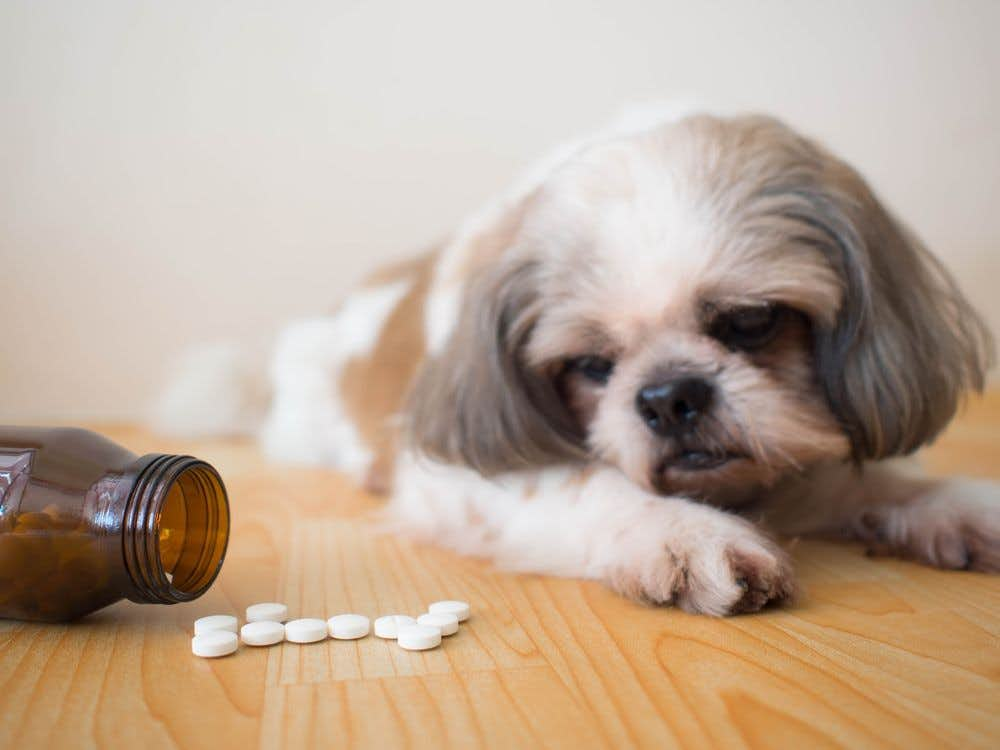August 2nd, 2024

When it comes to depression treatment, Trazodone is a medication that often comes up as an effective option. Originally developed as an antidepressant, Trazodone has also gained popularity for its off-label use in treating insomnia due to its sedative properties. Whether you're prescribed Trazodone for depression, sleep issues, or anxiety, understanding how this medication works, its uses, and potential side effects is crucial to making informed decisions about your treatment.
Keep reading to take a deep dive into Trazodone's side effects, uses, and more to help you get a clearer picture of what to expect and how it might fit into your health journey.
Trazodone is a serotonin modulator medication used to treat depression. During the early 1980s, trazodone became commonly prescribed for patients who experienced symptoms of depression. Although trazodone is mainly used as an antidepressant, doctors may prescribe it to patients with other complications; such as schizophrenia or anxiety.
Trazodone is classified under a category of medicine known as serotonin modulators. Serotonin is a neurotransmitter, chemical in the brain, that works by sending signals between nerves. This chemical is used to regulate mood, appetite, sleep, memory, digestion, and sexual desire. Serotonin modulators target multiple serotonin receptors to slow down the reuptake of serotonin which leads to a higher concentration of serotonin to be used in the brain.
Here is a list of Trazodone side effects, keep in mind some side effects are more severe than others:
If side effects become severe, do not hesitate to contact your physician.
Some of the more severe Trazodone side effects may be toxic; these may or may not include:
Given the nature and possible side effects of taking a drug like trazodone, it is important to understand its safety precautions.
Ensure you speak to your physician about possible side effects and precautions you can take while on the medication.
Trazodone can be prescribed as a use for sleep related issues such as:
In some cases of depression, trazodone can be taken as a major depression disorder medication to help control and manage depression symptoms.
The effects of trazodone can help to reverse the use of drug addiction, such as cocaine use.
Some doctors may prescribe the use of trazodone when an individual is battling dementia.

Some expecting women may be ordered to take trazodone for specific mental health concerns.
Used not only to treat mental health in humans, trazodone is sometimes used to treat a variety of issues in dogs.

Combining Trazodone and alcohol is generally not recommended. Both substances have sedative effects, and using them together can increase the risk of extreme drowsiness, dizziness, impaired coordination, and even respiratory depression. Drinking alcohol while on Trazodone can also reduce the effectiveness of the medication and potentially worsen depression or anxiety symptoms.
Combining two medications that affect serotonin levels such as Trazodone and Lexapro can increase the risk of serotonin syndrome, a rare but serious condition. Always follow your doctor’s guidance and report any unusual symptoms like confusion, rapid heart rate, or muscle stiffness.
Both Trazodone and Gabapentin medications can cause sedation, so taking them together may enhance drowsiness, dizziness, and impair coordination. Close monitoring by your doctor is important to ensure the combination is safe and effective for your specific needs.
Trazodone and Xanax (Alprazolam) are both sedative medications but belong to different classes—Trazodone is an antidepressant, while Xanax is a benzodiazepine. When taken together, they can significantly increase sedation, drowsiness, and dizziness, potentially impairing motor coordination and cognitive function. This combination should be used with caution and under close supervision by a healthcare provider to avoid excessive sedation and other risks, such as respiratory depression or dependence on Xanax. Always follow your doctor's instructions when using these medications together.
Trazodone has been used to help treat symptoms of depression, anxiety, and panic attacks for almost 40 years. When appropriately taken, this drug can have significant positive effects in treating an individual for specific needs.
If you or someone you know is suffering from depression, anxiety, or other mental health disorders, Clarity Clinic can help. We offer the best psychiatrists in Chicago that can determine if medications like Trazodone are the right fit for you. Our mental health clinics offer online psychiatrists, medication management, psychiatric evaluations, TMS therapy, IOP/PHP programs, and more.
If you’ve noticed that depression medication does not work, and have been diagnosed with treatment resistant depression, our TMS therapy services could be a great option. Schedule an appointment today to speak to the best psychiatrist near you and improve your mental health.
Important Notice: The information provided on this page is for educational and informational purposes only. It is not intended as a substitute for professional medical advice, diagnosis, or treatment. Always seek the advice of your physician or other qualified health provider with any questions you may have regarding a medical condition or medication. Never disregard professional medical advice or delay in seeking it because of something you have read here.
Find a PsychiatristRelated Readings:
What is Trazodone used for?
Trazodone is primarily used to treat depression. However, physicians have been known to use Trazodone to help treat other conditions such as anxiety and insomnia.
Is Trazodone a controlled substance?
No, Trazodone is not a controlled substance. While Trazodone is a prescription medication, it is not classified as a controlled substance by the U.S. Drug Enforcement Administration (DEA). This means it has a lower potential for abuse and dependence compared to medications that are controlled substances, such as benzodiazepines or opioids.
Why is Trazodone not helping me sleep?
If Trazodone is not helping you sleep, there could be an issue with your Trazodone dosage, the timing of administration, built tolerance over time, or Interactions with other medications or substances like caffeine and alcohol. Speak to your doctor to determine why Trazodone is not helping you sleep.
Does Trazodone cause weight gain?
Yes, Trazodone can potentially cause weight gain, although it is not a common side effect for everyone. Weight changes, including both weight gain and weight loss, have been reported by people taking Trazodone, but weight gain tends to be less frequent compared to other antidepressants.
How long does Trazodone last?
Trazodone's effects typically last around 6 to 9 hours. However, the duration can vary depending on the individual, dosage, and whether it's being used for sleep or depression.
How long does Trazodone take to work?
Trazodone usually takes about 30 minutes to 2 hours to start working when used for sleep. For depression, it may take several weeks (2 to 4 weeks) to feel its full effects. For some it can take even longer (around 4-6 weeks) to get its full effect.
Is Trazodone a narcotic?
No, Trazodone is not a narcotic. It is an antidepressant classified as a serotonin modulator and is not considered addictive or a controlled substance.
How long does Trazodone stay in your system?
Trazodone can stay in your system for approximately 1 to 3 days. Its half-life is around 5 to 13 hours, meaning it takes about this long for half of the drug to be eliminated from your body. Complete elimination may take longer depending on factors like metabolism, dosage, and individual health.
Is Trazodone a strong sleeping pill?
No, Trazodone is not a sleeping pill, it is an antidepressant. However, it can be used to help those struggling with insomnia as a sleeping aid, especially at lower doses, but it’s not considered a "strong" sleeping pill compared to other medications like benzodiazepines or prescription sleep aids.
Is Trazodone 50 mg a narcotic?
No, Trazodone 50 mg is not a narcotic. Trazodone is an antidepressant classified as a serotonin modulator and is not considered addictive or a controlled substance.
Our Services
Virtual/Online CarePHP and IOPAdult PsychiatryChild & Adolescent PsychiatryAdult TherapyChild & Adolescent TherapyCouples CounselingFamily TherapyGroup TherapyPsychological TestingTranscranial Magnetic Stimulation (TMS)